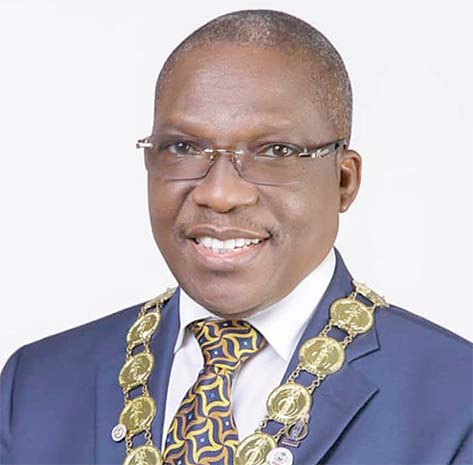Nigerian Institute of Quantity Surveyors (NIQS), has decried the infrastructure deficit in the country, saying that it’s over $2.3 billion now.
The figure, according to the institute, was the World Bank’s projection some years ago.
In an interaction with newsmen in Abuja, ahead of the forthcoming biennial conference slated for November 21-25, 2023 President of NIQS, Surveyor Olayemi Shonubi, said that between the time of the research and now, a lot of infrastructural decay had taken place. This figure, he noted, would have increased by now.
“I know that under the National Integrated Infrastructure Master Plan, it was said that it (Nigeria) would require $2.3 billion over 30 years. That was a study done by the World Bank some years ago. As at the time that was done till today, that figure would have gone up. From what one is reading in the papers I understand most of our ports have almost collapsed. So, we need to rehabilitate all our ports to get enough revenue from them. If the government was spending money on infrastructure since then, maybe it would have reduced.
However, Shonubi regretted that the professional bodies are inadequately funded and so will not be able to carry out some of the functions required of them.
“Government said it is not going to fund the professionals. I do not know how those bodies are going to survive. There is inadequate support for the body that it (government) created. So it is like the government is even encouraging quackery indirectly” he said.
He lamented the neglect of quantity surveyors by the built environment. He absolved the quantity surveyors of all blames arising from building collapse.
“Part of the advocacy we have been carrying on as a professional body since I joined NIQS as a young graduate back then in the 80s is the fact that an average Nigerian and even the government does not engage quantity surveyors. So, if I’m not engaged to offer my services and advocacy and something happens, how can you blame me? But the only thing I have is because I’m a member of a professional team in the built environment” he said, regretting that Nigerian professionals are embarrassed daily for what is happening in the country.
“We all feel sad because if you go to conferences abroad and they ask you what is happening in your country you are embarrassed. Does it mean that you do not have qualified professionals in your country? And that is the shame I always feel in my heart because as long as I’m a professional in the building industry, anything that happens will directly affect me even though I may not be directly involved.
“There are ways that we could prevent building collapses. For instance, if somebody wants to build a house there is something we call a resource schedule. That schedule will be your resource materials. If your project has been designed by a qualified professional, obviously it will be easy for the quantity surveyor to be able to give you an idea of the materials that you will use. If you engage a qualified professional, both in supervision as well as in construction there will be no issues but people do not want to pay professionals.
“Part of the challenges we have as professional bodies in Nigeria is enforcement and implementation. As a matter of fact there should not be building collapse in Nigeria” he submitted.
To this effect, he called for collaboration in the building industry as that could ameliorate the incidence of collapse.
“We believe that by fostering collaborative dialogue among industry experts, policymakers, researchers, and thought leaders, we can address the multifaceted challenges impeding our nation’s pursuit of comprehensive and sustainable infrastructural growth.
“Our collective efforts, showcased through this conference, will pave the way for a more resilient and economically sustainable future” he noted.
Recall that the Federal Government recently, withdrew financial support for professional bodies.
In a memo signed by the Director General of Budget Office of the Federation, Ben Akabueze, the funding would be stopped for at least 30 of the professional bodies and councils by December 2024 whilst budgetary allocations would be stopped for other bodies by December 2026.
“I wish to inform you that, the Presidential Committee on Salaries, (PCS) at its 13th meeting approved the discontinuation of budgetary allocation to Professional Bodies/Councils effective December 31, 2026,” the memo partly read.











